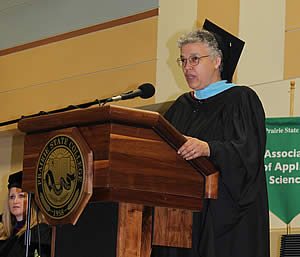
Chicago, IL-(ENEWSPF)- Cook County Commissioners approved an agreement championed by President Toni Preckwinkle that will create a pilot program to provide paid internships in high-growth industries and a career pathway for young adults.
The agreement creates a formal structure between the Chicago Cook Workforce Partnership (The Partnership) and the County’s Bureau of Economic Development (BED) and Department of Transportation and Highways (DOTH) to launch the program this summer.
The initial pilot will direct $1 million — $500,000 each from DOTH and the remainder from other offices or funds under the President – to The Partnership for the creation of internships in critical growth industries and to provide wraparound services for at least 200 participants.
While the initial investment is coming from the County, the program’s goal is to create a sustainable public-private partnership that will add additional participants over time. The County is seeking external resources to augment the program this year – as well as in the future.
“This new program will provide young adults with paid internships that include industry-informed training or work experience in high-growth/high-demand sectors of our economy, including manufacturing; transportation, distribution and logistics; and information technology,” President Preckwinkle said.
The program will target young adults ages 16-24 from suburban Cook County who face barriers to employment, are from income-eligible households or reside in communities with high rates of unemployment or poverty.
The program centers around an intensive paid internship in a private sector business and is at least seven weeks in length. Most young adults will begin their internships during the summer. The Partnership will join with service providers to hire and train career mentors and identify employers; recruit and retain youth throughout the program; serve as liaison between employers and participants; and oversee quality of work assignments for the selected program participants.
“Young adults are often defined by their challenges. We want to create a generation of professionals who are defined by their talents,” said Karin M. Norington-Reaves, CEO of The Partnership, “This initiative is a step in that direction, allowing us to work with community-based service providers and partner with employers to expose young people to careers they may have never considered and businesses to talent that they might have otherwise missed.”
According to the Great Cities Institute, suburban Cook County is home to more than 45,000 youth between the ages of 16 and 24 who are neither employed nor enrolled in school. Most of these young adults reside in the south and west suburbs; the program will focus on those regions of the County in securing participants.
Preckwinkle noted that while participating in structured and meaningful paid internships will expose the youth to career opportunities in industries that are critical to Cook County’s economic future, long-term success requires more than just providing a short-term work-based experience.
“That is why this program is structured to also provide participants with support services such as mentoring, leadership development, transportation assistance and career exploration activities,” she said. “The program will also help youth develop longer-term career goals and identify resources to achieve their education and employment goals after the program ends.”
Building a career pathway and pipeline to jobs for vulnerable young people is an economic development tool and also supports an important component of President Preckwinkle’s public safety agenda – keeping vulnerable youth out of the criminal justice system.
“Engaging ‘opportunity youth’ in our workforce supports what I have often said: One of the best ways we can keep young people out of the justice system is to find them a job,” Preckwinkle said.








